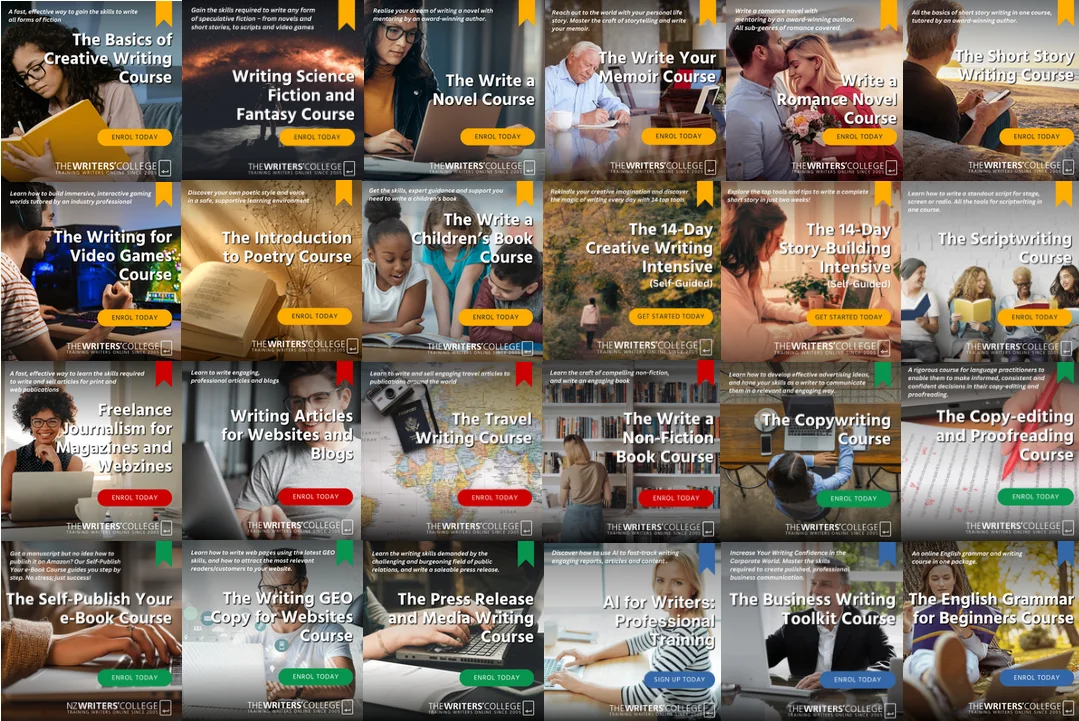If you’ve ever asked AI to do a writing assignment for you, you may have wondered about the result. How conspicuous is AI’s input? And is it Pulitzer-worthy content, or just a load of slop? Your inability to tell the difference puts you firmly in the realm of most humans: we can see the glitter, but somehow, there’s this sneaky feeling it’s not gold. So, pull up a chair. Let’s unpack the five biggest problems with AI writing.
BY NICHOLA MEYER
1. It writes like a perky intern on a caffeine binge
Have you noticed how AI sounds like the cast of High School Musical just got jobs in corporate communications?
Example:
Elevate your fullest potential today and revolutionise your workflow with our cutting-edge synergy solutions!
Translation:
We sell staplers.
AI can’t help it. It was trained on a wide range of LinkedIn posts, TED Talks and influencer captions. If you don’t rein it in, it’ll start calling your dental cleaning a ‘transformational journey’.
Be wary of the words it uses in almost all of its marketing outputs: unlock, boost, discover, transform, elevate, powerful, proven, secret, game-changer, ultimate, now, easy, perfect, next-level. Boring!
Fix: Make friends with the delete key. Cut the sparkles; keep the truth.
2. It does monotony like a clomping donkey
‘Clompy’ is my own word to describe the reams of AI-generated social media posts and blog articles that all sound similar. The sentence lengths are similar. The internal rhythm is similar. The word choices are similar. All I read is clomp-clomp-clomp.
Let’s see what I mean. Here’s what I read today on Facebook:
From a page for book lovers:
Annie Ernaux is a French writer and Nobel laureate whose work has radically redefined the boundaries of autobiographical writing. Her 2008 memoir, The Years (Les Années), was hailed as a modern masterpiece: a sweeping blend of personal history and collective memory that spans postwar France through the lens of her life. It earned international acclaim and was central to her winning the 2022 Nobel Prize in Literature, making her the first French woman to receive the honor.
Thankfully, AI content has recently stopped its excessive use of the em dash—yay! (Yes, that’s an em-dash) The upgrade includes a more sophisticated use of commas, as evident in this example. However, note the sentence lengths that range from 19 words to 32 words. What happened to the power of short sentences?
From a health page:
In Romania, you can board the bus without paying a cent, but only if you do 20 squats in front of a smart machine.
This innovative measure was promoted by local authorities as part of a campaign to combat urban sedentary lifestyles and promote healthy habits in daily routines.
The machines, installed in key public transport stations, are equipped with motion sensors and cameras that detect correct posture, count repetitions in real time, and, upon completion, automatically print a free ticket valid for one bus ride.
Sentence lengths range from 24 to 37 words, slowing the pace and potentially boring the reader. It would be fine if there were one long sentence, followed by some medium and shorter sentences. But AI won’t deliver those unless asked, and instead, you’ll get a similar structure and length in each AI-generated sentence.
Here’s how a short sentence thrown into the mix can help:
E.g. In Romania, you can board the bus without paying a cent. The catch? You have to first complete 20 squats in front of a smart machine.
Local authorities initiated this innovative measure as part of a campaign to combat urban sedentary lifestyles and promote healthy daily habits.
The machines, installed in key public transport stations, are equipped with motion sensors and cameras; they can detect correct posture and count squat repetitions in real time. Participants aren’t just rewarded with stronger quads and glutes. They also score an automatically printed free ticket for one bus ride.
Fix: Know how to mix up your sentence lengths and disrupt monotonous pacing. Prompt AI to give you precisely what you want from your sentences. If you don’t, be prepared for a bland Wikipedia entry that can’t uplift, unlock or unleash anything other than sleepiness in your reader.
3. It doesn’t really know anything (but it’s great at pretending it does)
AI is like that kid in class who didn’t do the reading but skimmed the Wikipedia summary and now has opinions. It will confidently tell you that platypuses lay eggs in trees and that Winston Churchill was a guest on Saturday Night Live.
For instance, you know the story about the free bus ticket in exchange for 20 squats? It was posted all over social media last week, but is it true? Not really. A local council installed the smart machine in one city (Cluj-Napoca) in 2020. Is the programme still running? Intermittently, usually to coincide with an annual sports festival in the city.
Fix: Fact-check like your manuscript depends on it. Because it does. Don’t know how to do primary research? Check out our Write with AI Course here.
4. It can’t take creative risks. It lives in the land of the bland
AI doesn’t take creative leaps. It gently sidesteps them, much like avoiding eye contact with an ex at your local supermarket.
To be blunt, AI has the emotional depth of an artificially scented candle. It will only ever be as good as the prompt you give it. If you ask it to ‘describe a rainy day in Paris,’ it will produce a gloss of travel clichés: cobblestones slick with rain, the Eiffel Tower hazy in the mist.
A more specific prompt yields better scaffolding. Your own memories and lived experiences can take you even further. Use them.
Here’s an example:
‘Write an opening scene for an article set in Paris on a day of relentless drizzle. Include the sour smell of wet Metro seats, the squeak of a damp coat sleeve, and the sound of someone swearing softly in French after stepping in a puddle. The narrator is hungry, damp and heartbroken.’
See the difference? Now AI can produce something like this:
It was the kind of Paris day that makes you question your life choices, your haircut, and whether you really believe in God. A light, ceaseless, grey-white drizzle hung in the air. The whole city felt vaguely weepy, like it was going through a breakup of its own.
The Metro seat beneath me let out a squelch when I sat down: sour, like damp wool and regret. My coat sleeve squeaked against my side when I adjusted my bag, a sound that was somehow louder and more accusatory than it had any right to be. Across the aisle, a man in a navy peacoat stepped off the train and straight into a puddle. ‘Putain de merde,’ he muttered, just softly enough to make it feel personal. Which, honestly, same.
I was hungry in the way only heartbreak can make you: hollow, but without the energy required to eat. I’d skipped breakfast, telling myself I’d find something life-affirming at a café, but instead I’d wandered aimlessly, damp jeans sticking to my thighs, stomach growling at every waft of espresso and buttery croissant that slipped out of doorways.
Paris in the rain is supposed to be romantic, but only if you’re holding someone’s hand and not a soggy tissue. I had the tissue.
Fix: You be the weirdo. Bring your whole, beautiful, uncomfortable human self to the page. That’s what readers came for. Then let AI handle the tedious tasks, such as perfecting grammar, punctuation, transitions and logical flow. Want to learn how to do this effortlessly? Sign up for our Write with AI Course.

5. It’s a chronic people pleaser.
AI doesn’t want to hurt anyone’s feelings. It’s like your over-apologetic friend who says ‘sorry’ when you step on their foot.
You: ‘Write a bold manifesto about quitting my soulless tech job to become a mushroom farmer.’
AI: ‘Certainly! Here’s a gentle, inclusive invitation to consider exploring alternative career paths, should you so desire, no pressure at all, of course.’
That’s a ‘no’ from me. You wanted searing truth. You got a wishy-washy, lily-livered line from the Ministry of Niceness.
Fix: Ask it to channel Hunter S. Thompson or provide a sample of your most unhinged diary entry. Then wrestle it back to sanity.
Using AI to write your stuff is a bit like hiring someone to ghostwrite your personal memoir. You’ll get something, sure. Something fake. Hollow words with zero heart.
Let AI help you brainstorm, yes. Let it outline, summarise and tighten. Let it spruce up your grammar and punctuation. But when it comes to the meat of the thing, the ache in your heart, the glorious imperfection of your inner life, you need to be doing the creating.
Discover how in our new course: Write with AI. You’ll receive a secret editing cheat sheet to obliterate the clumsiest pitfalls of AI-generated content. You’ll also learn to make your writing uniquely, irreplaceably yours in seven rigorous modules, with assessments of your writing by an award-winning writer.










